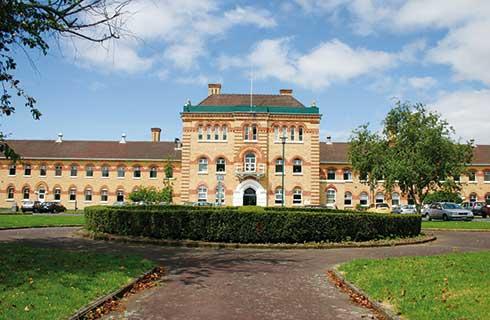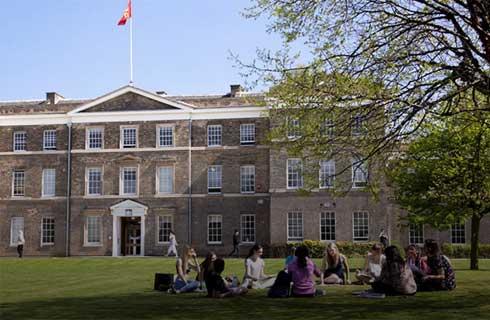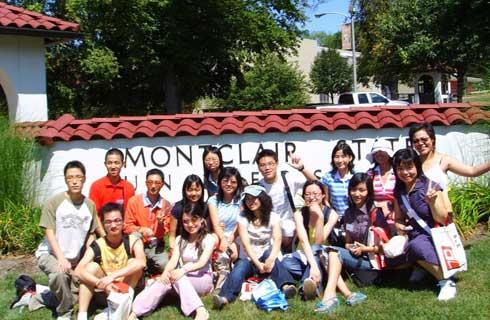Doctor of Philosophy in Modern Languages

学历文凭
Ph.D.

专业院系
UCD College of Arts and Humanities

开学时间

课程时长

课程学费

国际学生入学条件
IDP—雅思考试联合主办方

雅思考试总分
7.0
- 雅思总分:7
- 托福网考总分:100
- 托福笔试总分:160
- 其他语言考试:PTE - 65
CRICOS代码:
申请截止日期: 请与IDP联系 以获取详细信息。
课程简介
相关申请
 预科
预科 奖学金
奖学金 实习机会
实习机会 在校学习
在校学习 跨境学习
跨境学习 校园授课-线上开始
校园授课-线上开始 在线/远程学习
在线/远程学习
开学时间&学费
学费信息仅供参考,请与IDP联系以获取详细信息
| 开学时间 | 时长 | 学费 | 地点 |
|---|
学校排名

世界排名201
数据源:
泰晤士高等教育世界大学排名
关于都柏林大学

都柏林大学学院(UCD)是爱尔兰最国际化、最多元化的大学。都柏林大学学院位于充满活力的首都都柏林,是来自 152 个不同国家的 11000 多名留学生的首选大学。UCD 在全球高等教育机构中排名前 1%。在 2026 年 QS 世界大学排名中,都柏林大学名列世界第 118 位。它被认为是欧洲顶尖的研究密集型大学之一。该大学的课程组合和提供的全面体验吸引着学生。在 UCD,有无数的俱乐部和社团供学生加入,每个人都可以在这里探索自己的兴趣并结交新朋友。这一点,再加上友好的校园环境,为那些希望出国留学的学生提供了无与伦比的体验。都柏林大学主校区位于都柏林贝尔菲尔德的绿地上,占地133公顷,风景优美。该校致力于可持续发展,对于许多学生来说,这也是一个重要的影响因素。在''QS世界大学可持续性排名''中,该校名列爱尔兰第一位、全球第49位。此外,该校的就业结果也名列全球第77位。在 UCD 学习的国际学生可以欣赏到爱尔兰现代化城市与数千年丰富历史和文化背景的鲜明对比。爱尔兰是本科生和研究生学习的理想目的地,爱尔兰的教育体系在全球排名前十。UCD的毕业生在政府、产业界、非政府组织和世界各地的机构中都非常受欢迎,该校 93% 的毕业生在完成学业后的六个月内就业或攻读研究生课程。作为世界上最开放、与全球联系最紧密的国家之一,爱尔兰提供了进入世界市场的重要机会。除了欧盟和欧元区成员国的身份之外,爱尔兰的地理位置还意味着它可以提供与全世界便捷的国际联系。
本校相关课程

BAFS(荣誉)(NFQ 8级)精算和金融研究
学历文凭
Bachelor Degree with Honours
开学日期
课程费用总额


BAgrSc(荣誉学位)(NFQ 8级)农业环境科学
学历文凭
Bachelor Degree with Honours
开学日期
课程费用总额


BAgrSc(荣誉学位)(NFQ 8级)农业系统技术
学历文凭
Bachelor Degree with Honours
开学日期
课程费用总额


会计学硕士
学历文凭
Masters Degree (Taught)
开学日期
课程费用总额


BAgrSc(荣誉学位)(NFQ 8级)农业科学
学历文凭
Bachelor Degree with Honours
开学日期
课程费用总额


研究生文凭精算科学
学历文凭
Postgraduate Diploma
开学日期
课程费用总额

其他相关课程

法语和数学(荣誉)文学士学位
 斯特灵大学
斯特灵大学泰晤士高等教育世界大学排名:594
学历文凭
Bachelor Degree with Honours
开学日期
课程费用总额


文学硕士(荣誉学位)意大利语和波斯语
 圣安德鲁斯大学
圣安德鲁斯大学泰晤士高等教育世界大学排名:162
学历文凭
Bachelor Degree
开学日期
课程费用总额


硕士(荣誉)德语/意大利语
 格拉斯哥大学
格拉斯哥大学泰晤士高等教育世界大学排名:84
学历文凭
Bachelor Degree
开学日期
课程费用总额


文学硕士-法语
 奥克兰大学
奥克兰大学学历文凭
Masters Degree (Research)
开学日期
课程费用总额


法语学士(荣誉)学士学位
 华威大学
华威大学泰晤士高等教育世界大学排名:123
学历文凭
Bachelor Degree
开学日期
课程费用总额


商务英语强化课程(伦敦校区)
 Stafford House International
Stafford House International学历文凭
English Language
开学日期
课程费用总额










 爱尔兰
爱尔兰